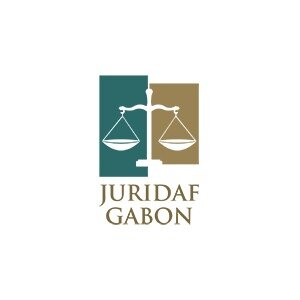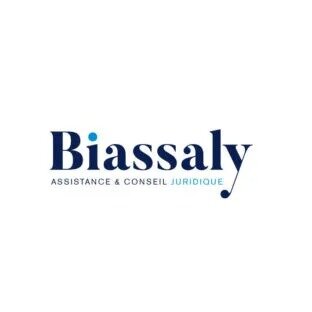Best Nonprofit & Charitable Organizations Lawyers in Gabon
Share your needs with us, get contacted by law firms.
Free. Takes 2 min.
Or refine your search by selecting a city:
List of the best lawyers in Gabon
About Nonprofit & Charitable Organizations Law in Gabon
Nonprofit and charitable organizations in Gabon play an essential role in addressing social issues, providing support for communities, and fostering development initiatives. These organizations operate under legal frameworks that guide their formation, management, operational scope, and accountability. The laws governing these entities ensure they operate transparently, maintain financial integrity, and contribute positively to society. Nonprofits in Gabon can range from small community-based organizations to international NGOs with large operational capacities.
Why You May Need a Lawyer
Engaging legal help for nonprofit and charitable organizations may be necessary in various situations. Legal professionals can assist with the formation and registration of the organization, ensuring compliance with Gabonese laws and regulations. They can provide guidance on drafting bylaws, employment contracts, and partnership agreements. Additionally, a lawyer can help navigate complex tax matters, offer representation in disputes or litigation, and provide advice on governance and fiduciary duties. Legal assistance is invaluable in ensuring that the operations of nonprofit organizations remain aligned with their mission and legal obligations.
Local Laws Overview
In Gabon, the legal framework governing nonprofit and charitable organizations is intricate and requires thorough understanding for proper compliance. Key aspects include the law on associations and non-governmental organizations, which outlines the procedures for registration, required documentation, and operational guidelines. Nonprofits must adhere to financial regulations, including maintaining transparent accounting records and submitting annual financial reports. Tax laws also play a critical role, offering exemptions and benefits to qualified organizations. Understanding these local laws is crucial for the legal and successful operation of any nonprofit entity in Gabon.
Frequently Asked Questions
What is the process for registering a nonprofit organization in Gabon?
Registering a nonprofit in Gabon involves submitting an application to the Ministry of Interior, including documentation such as the organization’s statutes, objectives, and a list of founding members.
Are there tax benefits available for nonprofits in Gabon?
Yes, qualifying nonprofit organizations may receive certain tax exemptions and benefits. It is advisable to consult with a legal expert to understand specific eligibility criteria and application processes.
Can foreign organizations operate as nonprofits in Gabon?
Foreign organizations can operate in Gabon but must comply with local registration and operational requirements tailored for international entities.
What are the responsibilities of board members in a nonprofit organization?
Board members are responsible for governance, strategic oversight, ensuring financial integrity, compliance with legal obligations, and overseeing the fulfillment of the organization's mission.
Do nonprofits need a special permit to fundraise in Gabon?
Depending on the type and scale of fundraising activities, nonprofits might need specific approval from governmental authorities. It is important to understand the regulations surrounding fundraising to avoid legal complications.
How does Gabonese law address conflicts of interest within nonprofits?
Conflicts of interest must be managed transparently. Gabonese law requires clear policies to identify, disclose, and manage conflicts to maintain organizational integrity.
What financial reporting is required of nonprofit organizations?
Nonprofits must maintain accurate financial records and submit annual reports. These documents are critical for transparency and accountability to members and regulatory bodies.
How can a nonprofit protect its intellectual property in Gabon?
Nonprofits can protect their intellectual property through Gabonese laws that cover trademarks, copyrights, and patents. Legal advice is essential to ensure adequate protection.
Can a nonprofit organization engage in commercial activities?
Nonprofits can engage in commercial activities as long as these activities support their main objectives. Any generated profits should be reinvested into achieving the organization’s mission.
What happens if a nonprofit organization violates the law in Gabon?
Violating the law may lead to penalties, including fines, suspension of activities, or even dissolution. This emphasizes the importance of adhering to legal requirements.
Additional Resources
For additional information and assistance, consider consulting the following resources: - The Ministry of Interior's department for associations and NGOs - Nonprofit legal advisors or law firms specializing in nonprofit law - Local NGO networks and umbrella organizations - Tax consultants with expertise in nonprofit taxation.
Next Steps
If you're seeking legal assistance for a nonprofit or charitable organization in Gabon, the first step is to consult with an experienced attorney who specializes in this legal area. Begin by outlining your organization's specific needs and any current legal challenges. Make sure to gather all relevant documents, such as your organization’s statutes and financial records, before your consultation. Legal experts can guide you through compliance issues, the regulatory landscape, and help you achieve your nonprofit's goals within the legal framework.
Lawzana helps you find the best lawyers and law firms in Gabon through a curated and pre-screened list of qualified legal professionals. Our platform offers rankings and detailed profiles of attorneys and law firms, allowing you to compare based on practice areas, including Nonprofit & Charitable Organizations, experience, and client feedback.
Each profile includes a description of the firm's areas of practice, client reviews, team members and partners, year of establishment, spoken languages, office locations, contact information, social media presence, and any published articles or resources. Most firms on our platform speak English and are experienced in both local and international legal matters.
Get a quote from top-rated law firms in Gabon — quickly, securely, and without unnecessary hassle.
Disclaimer:
The information provided on this page is for general informational purposes only and does not constitute legal advice. While we strive to ensure the accuracy and relevance of the content, legal information may change over time, and interpretations of the law can vary. You should always consult with a qualified legal professional for advice specific to your situation.
We disclaim all liability for actions taken or not taken based on the content of this page. If you believe any information is incorrect or outdated, please contact us, and we will review and update it where appropriate.
Browse nonprofit & charitable organizations law firms by city in Gabon
Refine your search by selecting a city.










